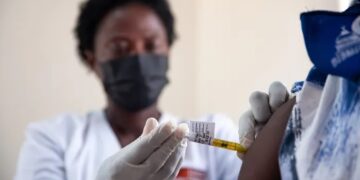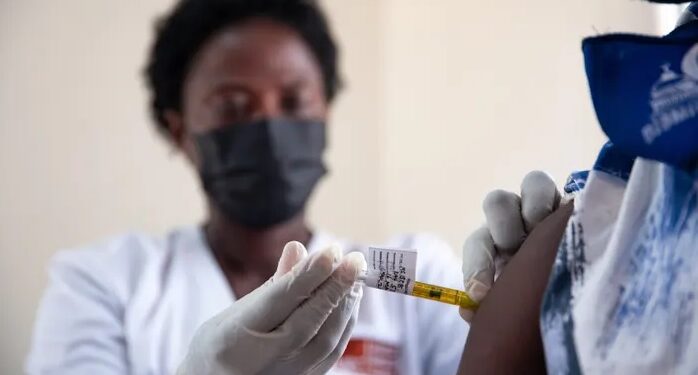By John Ikani
Health authorities battling a severe mpox outbreak in Africa are striving to avoid repeating the missteps of the Covid-19 pandemic, particularly the delayed access to vaccines.
In the week following the World Health Organization’s declaration of mpox as a global health emergency, efforts to secure vaccines for Africa have been ongoing. The first shipments are anticipated to reach the continent next week.
Crucially, strategies to ensure swift vaccination are also being implemented.
“The focus is on establishing robust supply chain management to accommodate the vaccine arriving in the coming days,” said Africa Centres for Disease Control and Prevention Director General Jean Kaseya on Tuesday.
Mpox has existed on the continent since the 1970s, largely ignored by the international community. Despite being the only region where the disease is endemic, Africa received no vaccines for the virus in 2022 when it spread globally.
This echoes the situation during the Covid-19 pandemic. When those vaccines first became available, Africa was left behind.
Even after agreeing to a plan to enhance the continent’s emergency response capabilities, African nations failed to build adequate vaccine stockpiles.
This failure is partly attributed to the lack of local vaccine production. The region imports almost all its vaccines, and efforts to establish a vaccine industry have faltered. Kaseya is determined to change this.
“Without local manufacturing in Africa, we remain vulnerable,” he said.
The Biovac Institute, a South African vaccine manufacturer, will engage with the Africa CDC to explore technology transfer for producing mpox vaccines, said Chief Executive Officer Morena Makhoana.
Africa CDC is in discussions with Bavarian Nordic A/S, one of the few companies with an approved mpox vaccine, to ensure swift access while enabling African manufacturers to fill vials with the Danish company’s vaccine.
This would facilitate local production, reducing costs without sacrificing quality, Kaseya explained in an online press briefing.
The continent requires 10 million doses, but the high cost of approximately $100 per dose poses a challenge. “Many countries cannot afford them at that price,” said Helen Rees, founder of the Reproductive Health and HIV Institute in Johannesburg.
Bavarian Nordic has stated it can meet the immunization needs of African nations. The obstacle has been a lack of orders: Manufacturers are hesitant to produce large vaccine quantities without a guaranteed market.
“Given the global health threat, we need to consider funding to subsidize vaccines for low and middle-income countries where cases are occurring,” said Rees, who also chairs the WHO’s African Regional Technical Advisory Group on Immunization.
She stressed the urgency for African nations to secure their supplies before the threat escalates.
“Unless the African region has access to all necessary emergency response products, we will perpetually be waiting,” said Rees.
Even with the arrival of vaccines, there won’t be enough for widespread vaccination. The Africa CDC plans to prioritize high-risk populations and those likely to be exposed through household or sexual networks.
While research suggests most cases in the eastern Democratic Republic of the Congo are in children, there’s a separate outbreak among adults, many of them women identifying as sex workers.
“We need people to accept the vaccine,” Kaseya said. “Stopping this outbreak in Africa today also saves lives” elsewhere in the world.




































